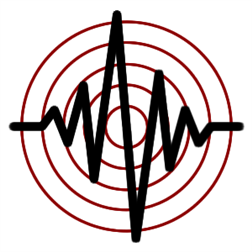- Departments
- Residents
- Business
- Visitors
Tips for After an Earthquake
Tips for After an Earthquake
Did you participate in the “Drop, Cover, Hold” Drill? If not, did you review the procedures and discuss what actions to take with family, friends, and co-workers? Think about the places you go during the week. Can you identify the safest location in each of those places? The best way to ensure correct action when an earthquake begins to shake is to rehearse what to do “before” it happens.
What to Do After an Earthquake
The following are things you can do to protect yourself, your family, and your property after an earthquake:
• If you can, change into long pants, long-sleeved shirts, gloves and sturdy shoes to protect yourself from broken items.
• Check for injuries and provide assistance, first to your family, then to your neighbors
• Check for hazards
• Do not approach downed power lines
• Use caution regarding items that can fall such as trees, branches or bricks
• If you are separated from your loved ones, attempt to make contact with your “Out-of-Area Contact” to report your status and find out about other family members or friends
• Monitor your radio for further instructions and information
• Expect aftershocks
If you have training or experience and can do so safety, consider the following:
• Put out small fires
• Check for gas leaks and electrical damage
• Immediately clean up spilled of potentially harmful materials such as medicines, gasoline, bleaches, or other household chemicals. Leave the area if you smell gas or fumes from other chemicals such as toxic gases that can cause injury or death
The following includes a list of recommended supplies to keep under your bed. Day or night you will have the essentials ready for quick response.
Under-the-Bed Items:
When disaster strikes, it may be difficult to think as rationally and as quickly as you would like. The more procedures you have in place, the easier they are to remember and implement, the more effective and efficient your response will be.
We recommend that you keep these basic response supplies under the bed. That way, day or night, you’ll know where to go to get the essentials.
At A Minimum:
• Keep a pair of sturdy shoes to protect your feet by each loved one’s bed at all times.
Critical under-the-bed items:
• Sturdy shoes - to protect your feet from broken glass
• Work gloves, preferably leather - to protect your hands from broken glass
• Hardhat - to protect you from falling objects like chimney bricks, downed trees and branches
• Flashlight & light sticks - essential for a nighttime response
• An OK/Help card, found in the MYN (Map Your Neighborhood) handout available from your local office of Emergency Management, or one that you prepare yourself
• A few band aids - to hang the OK/Help card in the window or on the front door


